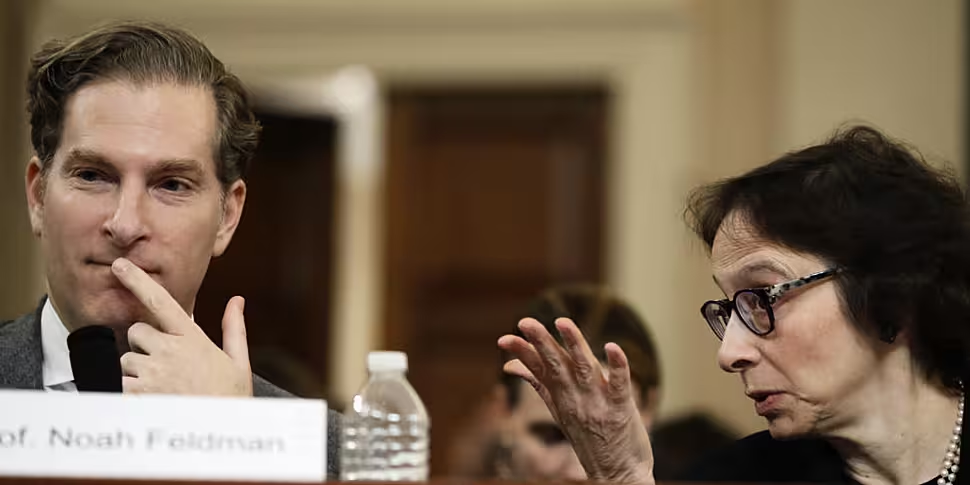Three US constitutional law professors have told a congressional committee that they believe Donald Trump has conducted an impeachable act, with one other scholar challenging that view.
The impeachment inquiry looking into the US president's actions in Ukraine has moved to its second phase - with the House Judiciary Committee having now begun hearings.
It comes after a draft report by the House Intelligence Committee accused Donald Trump of using his presidential powers "to solicit foreign interference on his behalf in the 2020 election".
The report published yesterday followed weeks of private and public hearings in the impeachment inquiry, looking into the Trump administration's dealings with Ukraine - as well as the involvement of the president's personal attorney Rudy Giuliani.
The inquiry - which the US president has denounced as a "Democrat hoax" - is investigating whether officials working for Mr Trump offered the Ukrainian president a White House visit in return for announcing an investigation into the son of Democratic presidential contender Joe Biden.
Today, four constitutional scholars appeared before the judiciary committee to offer their views on whether there was evidence Mr Trump committed a 'high crime and misdemeanor' - the US constitution's criteria for impeachment.
Three of the experts - picked by Democrats - said they believed he did, with a fourth dissenting:
"Professors... you have identified that on the evidence here, there is an impeachable act -- a high crime and misdemeanor of abuse of power, correct?"
"Correct."
"Yes."
"Yes." pic.twitter.com/7fZr13oaF7— Congressmember Bass (@RepKarenBass) December 4, 2019
Testimony
Professor Pamela S Karlan of Stanford Law School told the committee: "When President Trump invited - indeed demanded - foreign involvement in our upcoming election, he struck at the very heart of what makes this a republic to which we pledge allegiance.
"That demand... constituted an abuse of power. Indeed, as I want to explain in my testimony, drawing a foreign government into our elections is an especially serious abuse of power, because it undermines democracy itself."
University of North Carolina law professor Michael Gerhardt, meanwhile, suggested: "If what we’re talking about is not impeachable, then nothing is impeachable."
The dissenting opinion came from Jonathan Turley of George Washington University, who was invited to the hearing by Republican members.
Prof Turley acknowledged concerns over President Trump's call with his Ukrainian counterpart, although raised concerns over the process.
He argued: "I am concerned about lowering impeachment standards to fit a paucity of evidence and an abundance of anger.
"If the House proceeds solely on the Ukrainian allegations,this impeachment would stand out among modern impeachments as the shortest proceeding,with the thinnest evidentiary record, and the narrowest grounds ever used to impeach a president.
"That does not bode well for future presidents who are working in a country often sharply and, at times, bitterly divided."
In the coming weeks Democrats in Congress are expected to decide whether to draw up articles of impeachment.
If the House of Representatives ultimately votes to impeach Mr Trump, he would then face a trial in the Republican-controlled Senate on whether he should be removed from office.









